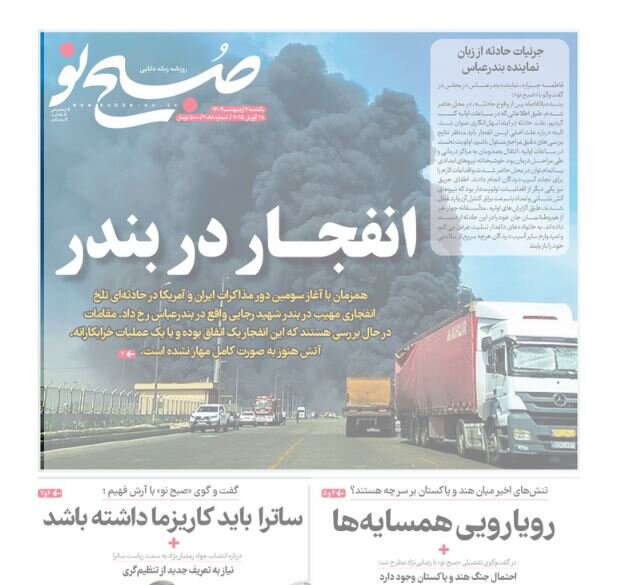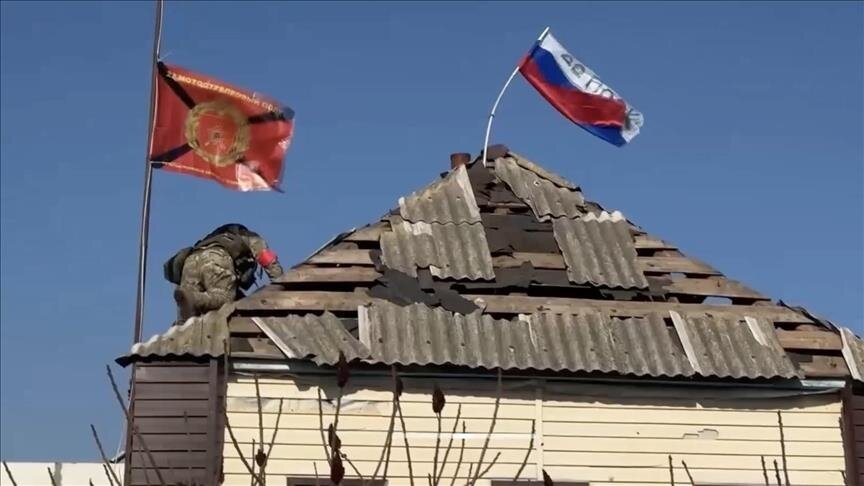
TEHRAN Iranian President Masoud Pezeshkian condemned the recent terrorist attack in Pahalgam, India, and offered Tehrans mediation to ease escalating tensions between India and Pakistan during separate phone calls with Indian Prime Minister Narendra Modi and Pakistani Prime Minister Shahbaz Sharif on Saturday.In his conversation with Modi, Pezeshkian expressed deep sorrow over the Pahalgam attack, which killed and injured dozens of civilians, emphasizing Irans solidarity with India.The Islamic Republic of Iran strongly condemns these inhumane terrorist acts, he stated, adding that regional stability hinges on collective efforts to eradicate terrorisms roots.Pezeshkian lauded the enduring legacy of Indias great leaders, stating that Iran recognizes the Indian nation through illustrious figures such as Mahatma Gandhi and Jawaharlal Nehru, who were champions of peace, friendship, and harmonious coexistence on the global stage.We hope that this guiding vision and strategic approach will continue to serve as the cornerstone of Indias relations with all countries around the world, the Iranian president added.He also highlighted the importance of economic ties, particularly the Chabahar Port project, calling it a strategic corridor linking Iran, India, and Russia.Modi thanked Pezeshkian for Irans condolences, noting, Your empathy is deeply valued, especially given Irans own tragic experiences with terrorism.He echoed the need for regional unity against terror and praised Irans role in global peace efforts, including its push for diplomatic solutions to tensions with the U.S.Later, in talks with Sharif, Pezeshkian expressed concern over rising India-Pakistan tensions and reiterated Irans readiness to facilitate dialogue.We view Pakistan as a brotherly neighbor and stand with both nations to resolve misunderstandings, he said, referencing plans to boost economic and infrastructure cooperation.Emphasizing the importance of strengthening scientific, economic, and cultural cooperation among Islamic countries, Pezeshkian stated: "Economic relations, joint investments, the expansion of scientific and technological partnerships, and a coordinated fight against terrorism can serve as the cornerstone of our extensive cooperation."Sharif welcomed Irans mediation, stating, Pakistan supports transparent investigations into the incident that occurred in India and values Tehrans stabilizing role.Irans president invited both Modi and Sharif to Tehran for talks, with Sharif proposing foreign minister-level preparatory meetings for a possible Tehran visit.Pezeshkians diplomatic flurry follows Iranian Foreign Minister Abbas Araghchis Friday offer to mediate, where he described India and Pakistan as brotherly neighbors with whom Iran shares centuries-old cultural and civilizational ties.Araghchi invoked a verse by Persian poet Saadi: Human beings are members of a whole / In creation of one essence and soul.Kashmir at the crossroadsThe Pahalgam attack, reportedly claimed by a Lashkar-e-Taiba offshoot, has intensified long-standing hostilities between New Delhi and Islamabad.India responded by revoking most Pakistani visas and suspending the 1960 Indus Waters Treaty, a move Pakistan termed an act of war.Cross-border shelling has since escalated, with both nations mobilizing troops along the Line of Control (LoC) in Kashmir.
Kashmir, a Muslim-majority region, has been a flashpoint since the 1947 partition of British India.Both nations claim it in full but control parts, with three wars fought over the territory.
India revoked Kashmirs autonomy in 2019, deepening tensions.
Despite UN calls for a plebiscite, the dispute remains unresolved, compounded by cross-border militancy and allegations of state-sponsored terrorism.
The Kashmir dispute demands a nuanced and impartial approach.
Iran, with its deep historical connections to both countries, is believed to be uniquely suited to this role.
Unlike other regional powers, Iran has maintained balanced relations with India and Pakistan, enhancing its credibility as a mediator.It maintains strong trade and energy links with India (e.g., Chabahar Port) while sharing a 900-km border and cultural affinity with Pakistan.Tehran has previously mediated regional conflicts, including during the 2001 Afghan crisis and the Armenia-Azerbaijan negotiations over the Nagorno-Karabakh conflict, showcasing its preference for dialogue over confrontation..
This article first appeared/also appeared in Tehran Times

 15
15















